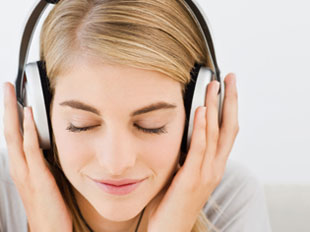Healthy Bravo!

Studies suggest classical music helps train children’s brains to build neuro–pathways, specifically those for language processes, spatial intelligence, and creativity. But just because you’ve graduated into adulthood doesn’t mean you’re immune to the Mozart Effect. Appreciate timeless concertos, and your mind and body just might appreciate you.
- Relieve pain. Before you grab an aspirin when your next headache strikes, turn on a little Canon in D. Researchers at the Florida Atlantic College of Nursing cited a decrease in chronic pain among sufferers of osteoarthritis, while many childbirth experts recommend playing classical music during labor to manage pain intensity and decrease medication.
- Sharpen mental edge. If you’re feeling sluggish and absentminded, turn up Beethoven to help wake up your mind. One study found that stroke patients who listened to music, specifically jazz or classical, regained language and motor skills better than those who didn’t. The results suggest that music could play a role in slowing cognitive decline.
- Reduce stress. The next time your blood boils or muscles clench, give Bach a chance. Evidence suggests classical pieces can dissolve tension and calm negativity. In fact, a 2004 experiment recorded vandalism went down 37%, robberies 33%, and staff assaults 25% in London subway stations after the British Transport Police piped classical music through the tunnels for 6 months.

